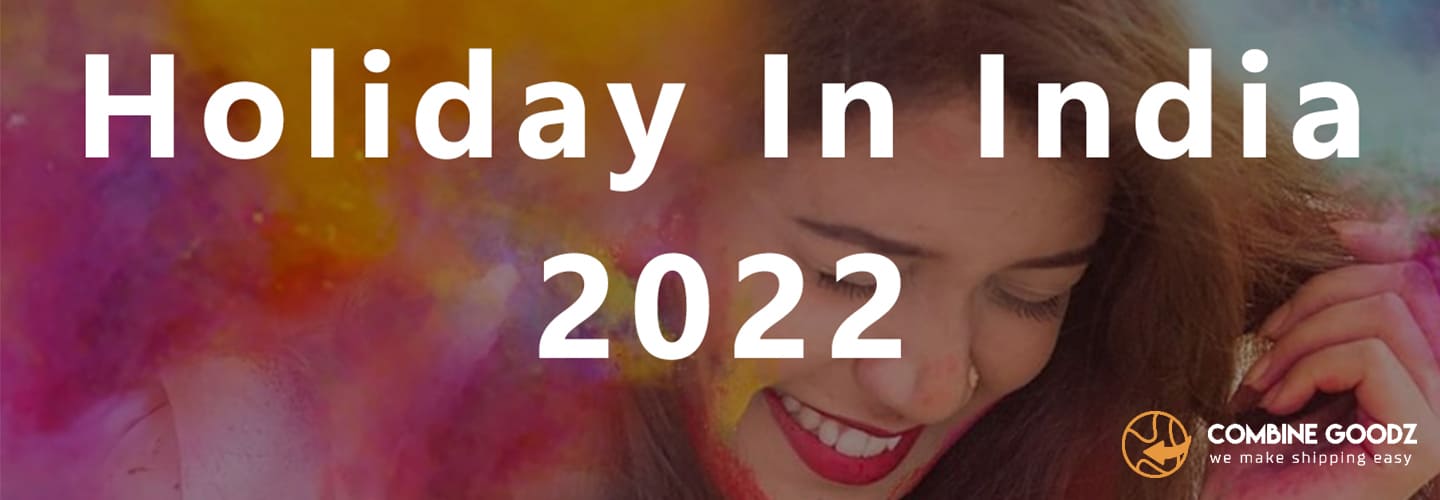
India is a land of festivities and has a diverse culture, where people from different religions, caste and culture have their days of celebrations. Some are national holidays which apply throughout India, while others are restricted holidays in some states only. In this article, we will introduce some of the most significant festivals and important days in India.
Table of Contents:
National Holidays in India
In India, there are only three national holidays which are observed in all states and union territories: Republic Day, Independence Day and Gandhi Jayanti.
Date | Holiday | Commemorates |
26th January | Republic Day | Adoption of the Constitution of India(1950) |
15th August | Independence Day | Independence from the UK(1947) |
2nd Oct. | Gandhi Jayanti | Birthday of Mohandas K. Gandhi(1869) |
Republic Day
Republic Day is a national holiday in India that commemorates the date on which the Indian Constitution took effect on January 26, 1950,as the country's governing document and transforming the country into a newly formed republic. The transition of India from an autonomous Commonwealth realm with the British Monarch as nominal head of the Indian Dominion to a fully sovereign Commonwealth republic with the President of India as nominal head of the Indian Union is also commemorated on this day.
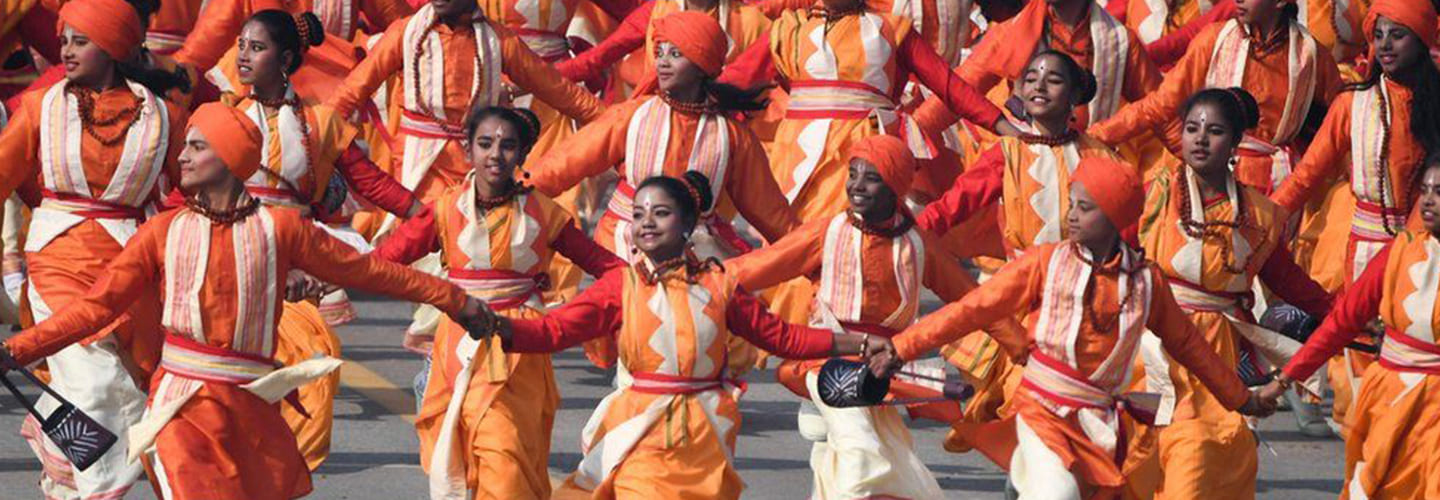
Independence Day
Independence Day is a national holiday in India that is observed every year on August 15. Independence Day commemorates the end of British rule in India in 1947 and the birth of a free and independent country. It also commemorates the partition of the Indian subcontinent into two countries, India and Pakistan, on August 14–15, 1947, at 12 a.m. (In Pakistan, the 14th of August is Independence Day.)
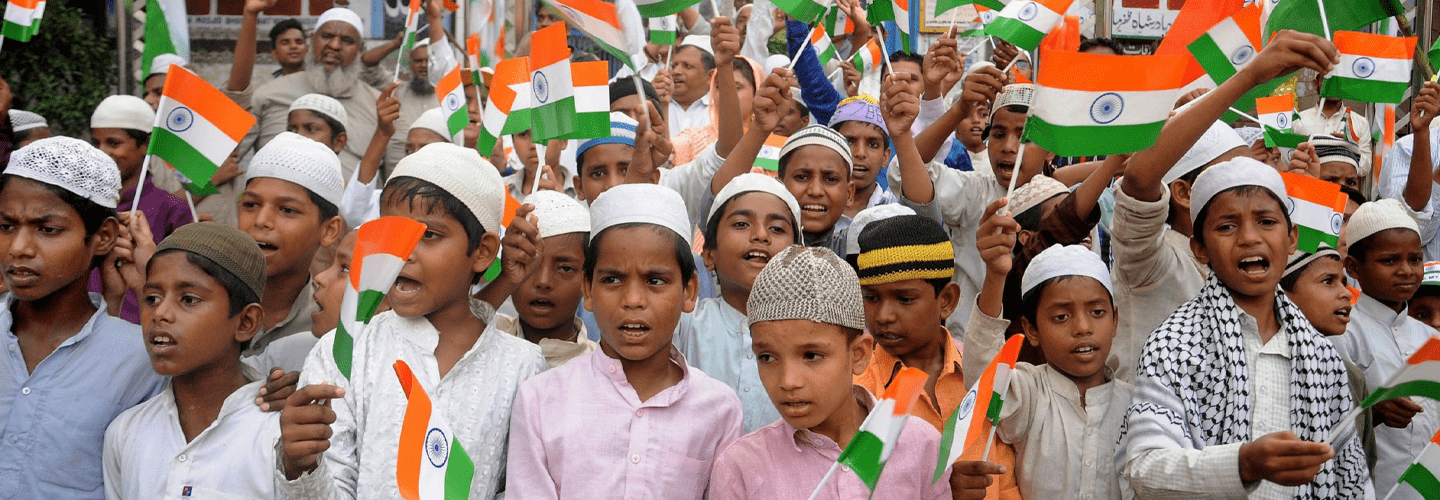
Gandhi Jayanti
Gandhi Jayanti is celebrated on 2nd October every year to mark the birth anniversary of Mohandas Karamchand Gandhi, who was famously known as Mahatma Gandhi.
As the "Father of the Nation," he led India's independence movement alongside many other national leaders against British rule. His nonviolent approach inspired many civil rights movements around the world. Every year on October 2nd, a national holiday is observed to honor his contributions to the country. The United Nations also recognizes the day as the International Day of Non-Violence.
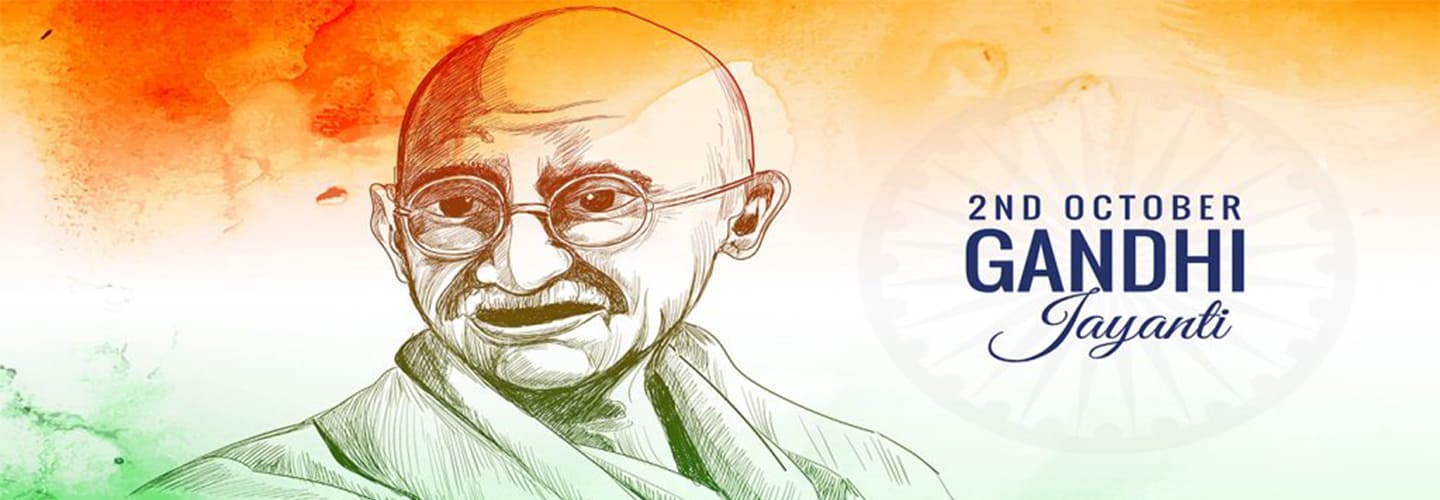
Popular Religious Holidays in India
In India, people from various religions coexist harmoniously. The diverse festivals celebrated in India are a true reflection of the country's rich culture and traditions. There are many religious festivals and celebrations in India, the most exciting of which are mentioned below.
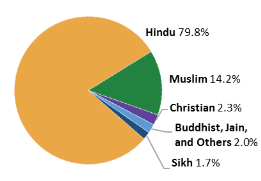
The major religions of India are Hinduism, Islam, Sikhism, Christianity, Buddhism.
Hindu Festivals
Hinduism is the largest religion in India. According to the 2011 Census of India, 966.3 million people identify as Hindu,representing 79.8% of the country's population.
There are a lot of Hindu holidays, but please keep in mind that Holi and Diwali are two of the biggest.
Holi and Diwali 2022 Date:
Date | Holiday |
18th March,2022 | Holi |
24th Oct.,2022 | Diwali |
Holi
Holi is one of the most reversed and celebrated ancient Indian festival, also known as the "Festival of Love", the "Festival of Colours". The festival celebrates the eternal and divine love of Radha Krishna. It also signifies the triumph of good over the evil,the arrival of spring. Although it is a Hindu festival, it is popular among non-Hindus.
This great Indian festival lasts for a day and a night, which starts in the evening of Purnima or the Full Moon Day in the month of Falgun(falls around the middle of March in the Gregorian calendar). The night before Holi, people gather to perform religious rituals and then pray for the destruction of their internal evil. The next morning, people begin the true carnival traditions by smearing each other with colored powders; for added fun, they sometimes use water guns and water-filled balloons. People march through the streets with drums and other instruments, singing and dancing. People also get together with their families and friends to color each other and share Holi treats.
Traditionally the colors used in Holi came from flowers and herbs—which in the hot climate of India tend to produce bright natural dyes. Some of the traditional natural plant-based sources of colours are: Blue, Yellow, Red and Orange—but today they’re usually synthetic.
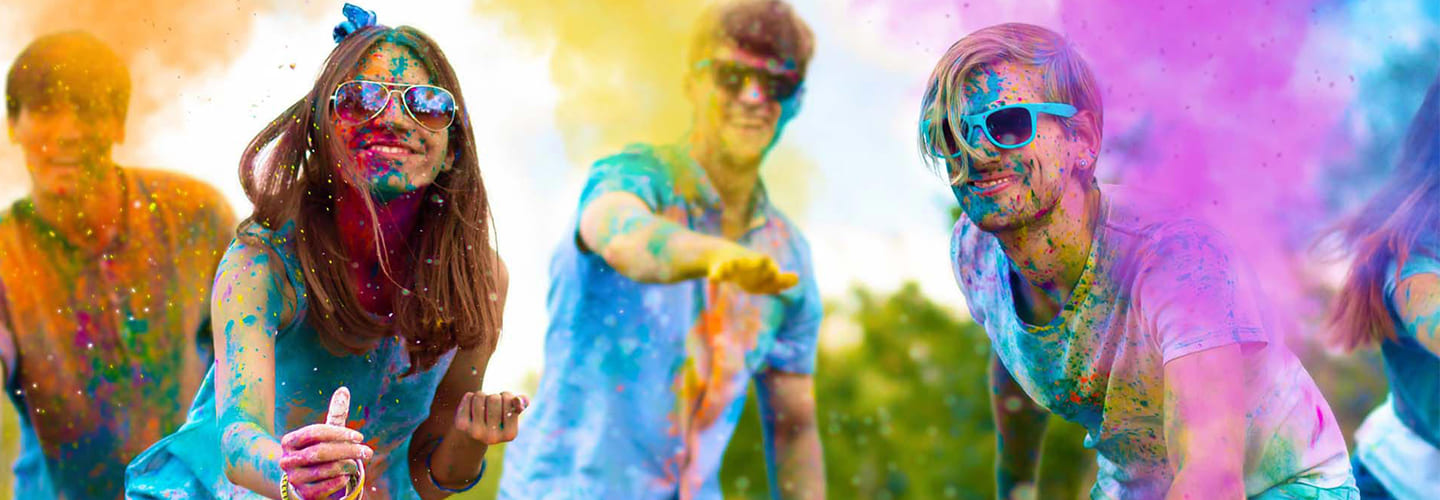
Diwali
Diwali is one of the most significant festivals of the year in India. The festival derives its name from the row (avali) of clay lamps (deepa) that Indians light outside their homes to represent the inner light that protects against spiritual darkness. This festival is as significant to Hindus as Christmas is to Christians. Over the centuries, Diwali has become a national festival that's also enjoyed by non-Hindu communities.
During this festival, people clean their homes, decorate every corner with lights, lamps, diyas, flowers, rangoli, and candles. Families also perform Lakshmi Puja and pray to the Goddess of wealth to bless them with health, wealth, and prosperity.
Diwali is a five-day celebration that includes good food, fireworks, colored sand, and special candles and lamps.
Day | Celebrated Activity |
Day 1 | To bring good fortune, people clean their homes and shop for gold or kitchen utensils. |
Day 2 | People decorate their homes with clay lamps and create rangoli design patterns on the floor with colored powders or sand. |
Day 3 | On the main day of the festival, families gather for Lakshmi puja, a prayer to Goddess Lakshmi, which is followed by delectable feasts and firework displays. |
Day 4 | This is the first day of the new year, when friends and family come to visit with gifts and best wishes for the holiday season. |
Day 5 | Brothers pay visits to their married sisters, who greet them with affection and a lavish meal. |
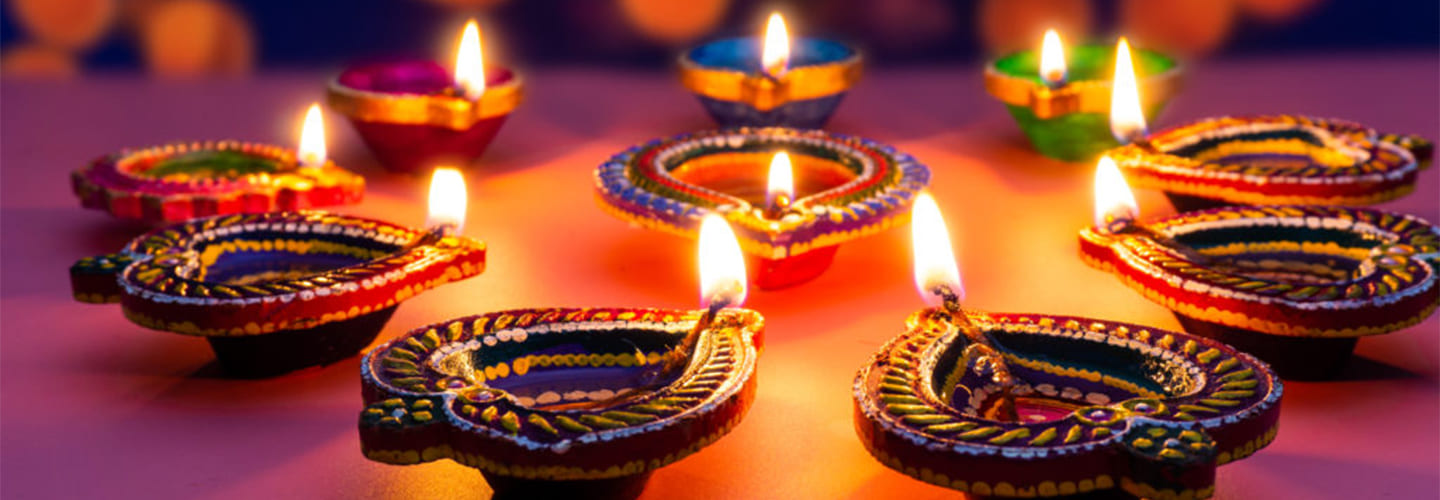
Kumbh Mela
Although Kumbh Mela is not hold every year, it is a highlight of the Hindu religious calendar.
The Kumbh Mela is a Hindu religious festival held every twelve years in Allahabad at the confluence of the Ganga and Yamuna rivers. Since its inception in the first millennium CE, the Kumbh Mela has grown to become the world's largest public gathering, attracting tens of millions of pilgrims over the course of a few weeks to bathe in the auspicious rivers. They believe that bathing in these rivers is a means to prāyaścitta (atonement, penance) for past mistakes, and that it cleanses them of their sins.
However, the Kumbh Mela festival in April of 2021 has become a superspreader festival of COVID-19, which caused a devastating second Covid wave in India.
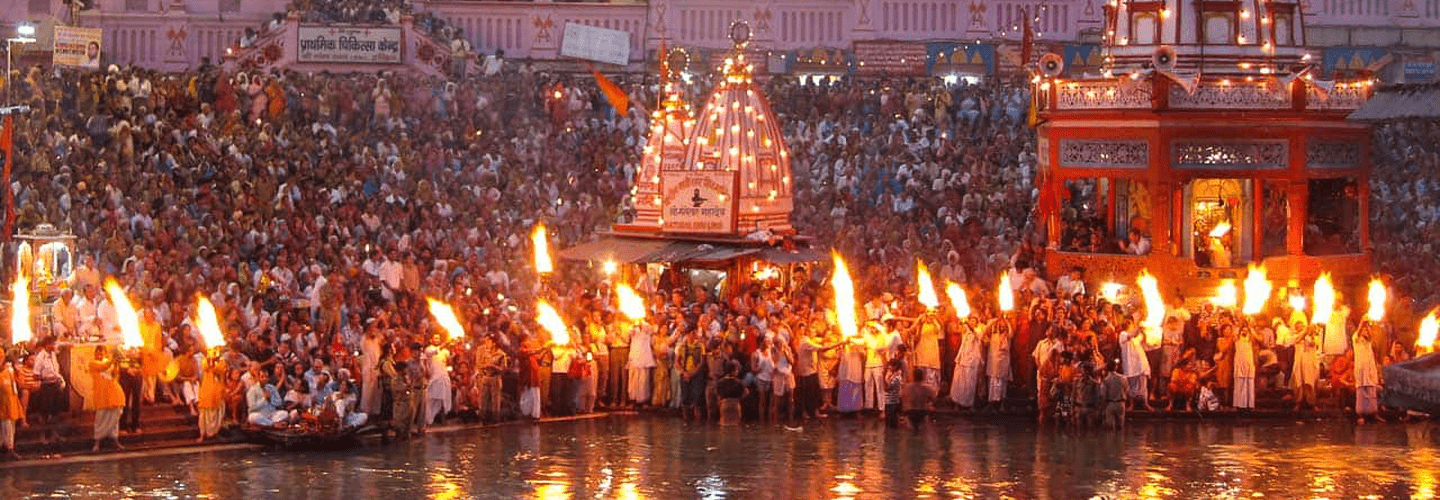
Islamic Festivals
Islam is the second-largest religion in India, with 14.2% of the country's population, approximately 172.2 million people,identifying as adherents of Islam in the 2011 census.
In general, Muslims observe two key holidays: Eid al-Fitr and Eid al-Adha. Both holidays occur on dates in the lunar Islamic calendar,which differs from the solar Gregorian calendar. So they are observed on different Gregorian dates every year.
Date | Holiday |
3rd May,2022 | Eid al-Fitr |
24th Oct.,2022 | Eid al-Adha |
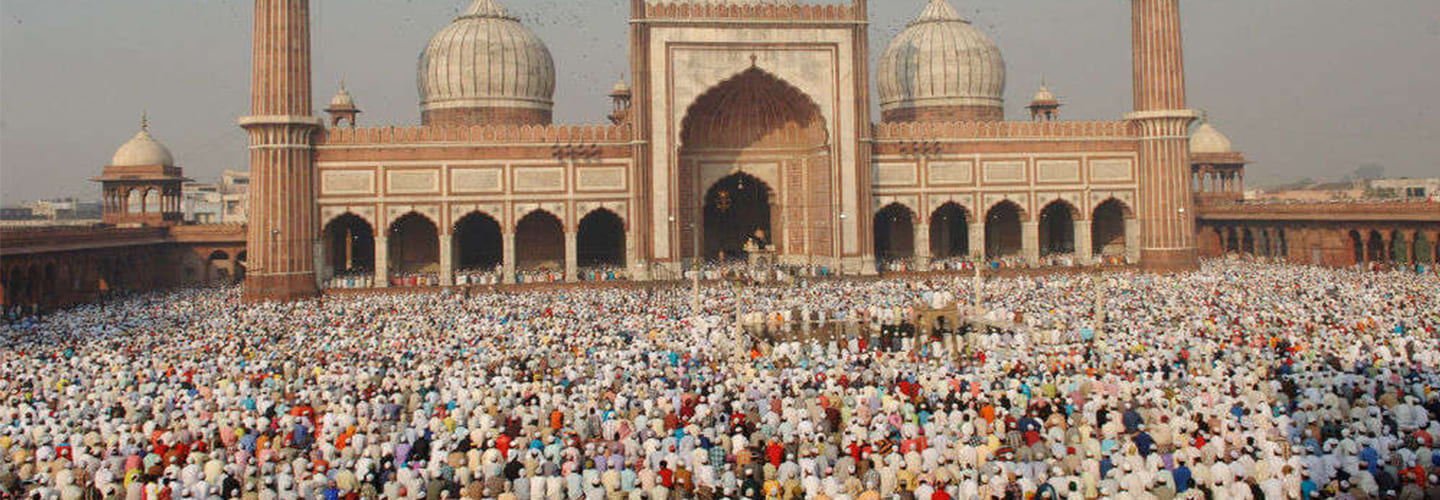
This Eid is often celebrated for one day each year at the end of the approximately 30-day month of Ramadan, during which many Muslim adults fast daily from sunrise to sunset and give charity to the poor and needy. Fasting for Ramadan is one of the five pillars of Islam.
Eid al-Adha begins on the 10 day of Dhu'l-Hijja, the last month of the Islamic calendar. Lasting for three days, it occurs at the conclusion of the annual Hajj, or pilgrimage to Mecca. Muslims all over the world celebrate it, not simply those undertaking the hajj, which for most Muslims is a once-a-lifetime occurrence.
The festival is celebrated by sacrificing a lamb or other animal and distributing the meat to family, friends, and the poor. The sacrifice symbolizes obedience to Allah and its distribution to others is an expression of generosity, which is one of the five pillars of Islam.
Christianity is India's third-largest religion after Hinduism and Islam, with approximately 27.8 million (2.78 Crore) followers, constituting 2.3 percent of India's population (2011 census).
Good Friday -15th April,2022
Good Friday is a gazetted holiday in India. It commemorates the final hours of Jesus' life, his crucifixion, and death, as described in the Christian bible.
Many Christians in India attend special church services or pray on Good Friday. Some people also fast or abstain from meat on this day. Many Christians hold parades or open air plays to portray the last days and hours of Jesus' life in some areas of India.
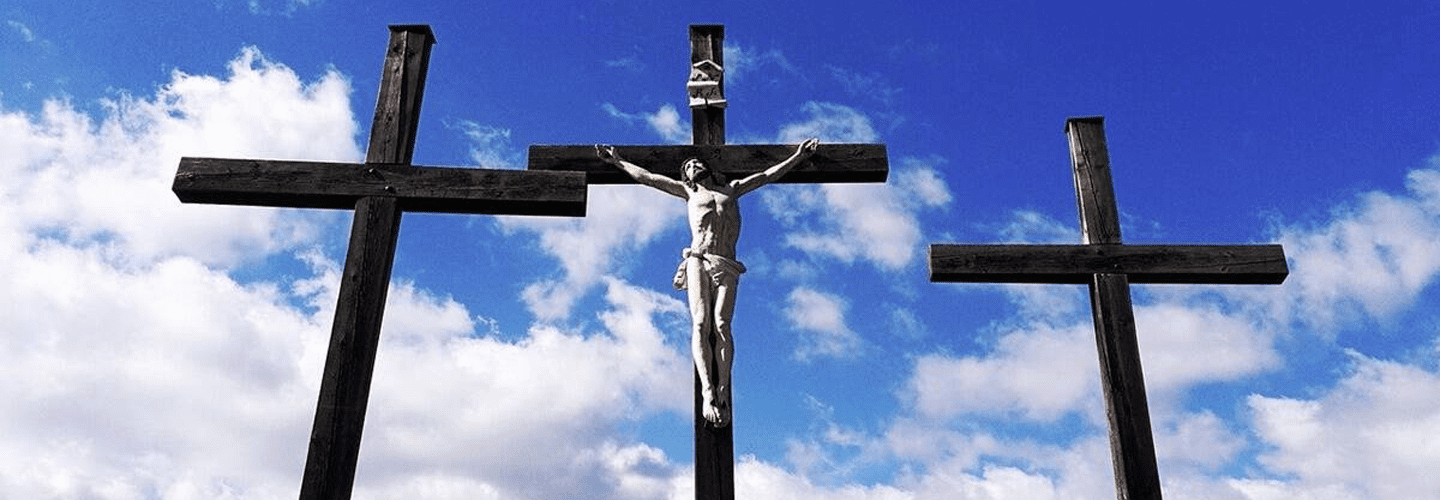
According to the 2011 Census there are 8.4 million Buddhists in India (0.70% of the total population).
Buddha Purnima - 16th May,2022
Buddha's Birthday (also known as Buddha Purnima) is a Buddhist festival commemorating the birth of Prince Siddhartha Gautama, later the Gautama Buddha, who was the founder of Buddhism. It is celebrated in most of East Asia and South Asia.
The exact date of Buddha's birthday is based on the Asian lunisolar calendars. The date for the celebration of Buddha's birthday varies from year to year in the Western Gregorian calendar, but it usually falls in April or May.
Download 2022 India's holiday calender for your desk:
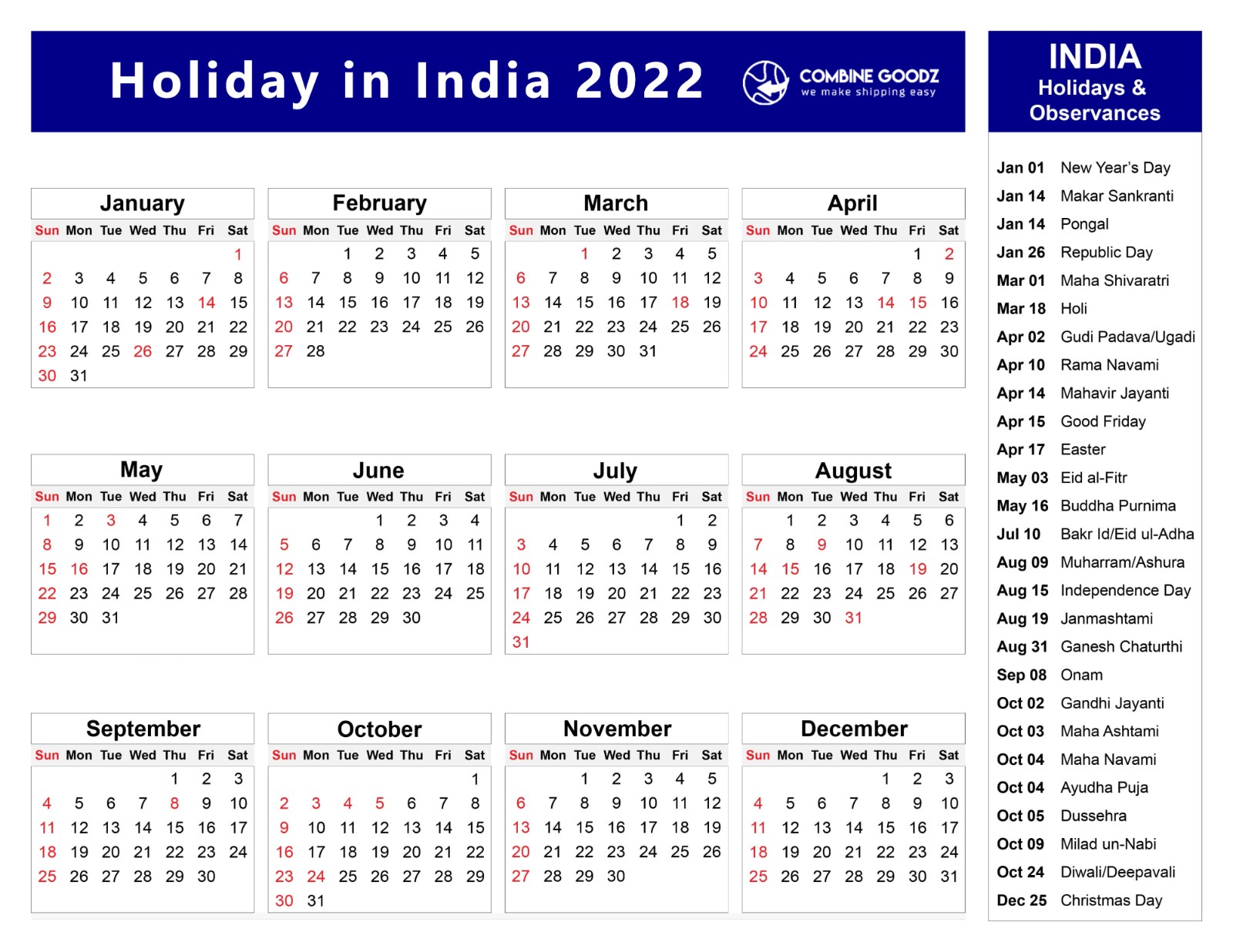

India is a land of festivities and has a diverse culture, where people from different religions, caste and culture have their days of celebrations. Some are national holidays which apply throughout India, while others are restricted holidays in some states only. In this article, we will introduce some of the most significant festivals and important days in India.
Table of Contents:
National Holidays in India
In India, there are only three national holidays which are observed in all states and union territories: Republic Day, Independence Day and Gandhi Jayanti.
Date | Holiday | Commemorates |
26th January | Republic Day | Adoption of the Constitution of India(1950) |
15th August | Independence Day | Independence from the UK(1947) |
2nd Oct. | Gandhi Jayanti | Birthday of Mohandas K. Gandhi(1869) |
Republic Day
Republic Day is a national holiday in India that commemorates the date on which the Indian Constitution took effect on January 26, 1950,as the country's governing document and transforming the country into a newly formed republic. The transition of India from an autonomous Commonwealth realm with the British Monarch as nominal head of the Indian Dominion to a fully sovereign Commonwealth republic with the President of India as nominal head of the Indian Union is also commemorated on this day.

Independence Day
Independence Day is a national holiday in India that is observed every year on August 15. Independence Day commemorates the end of British rule in India in 1947 and the birth of a free and independent country. It also commemorates the partition of the Indian subcontinent into two countries, India and Pakistan, on August 14–15, 1947, at 12 a.m. (In Pakistan, the 14th of August is Independence Day.)

Gandhi Jayanti
Gandhi Jayanti is celebrated on 2nd October every year to mark the birth anniversary of Mohandas Karamchand Gandhi, who was famously known as Mahatma Gandhi.
As the "Father of the Nation," he led India's independence movement alongside many other national leaders against British rule. His nonviolent approach inspired many civil rights movements around the world. Every year on October 2nd, a national holiday is observed to honor his contributions to the country. The United Nations also recognizes the day as the International Day of Non-Violence.

Popular Religious Holidays in India
In India, people from various religions coexist harmoniously. The diverse festivals celebrated in India are a true reflection of the country's rich culture and traditions. There are many religious festivals and celebrations in India, the most exciting of which are mentioned below.

The major religions of India are Hinduism, Islam, Sikhism, Christianity, Buddhism.
Hindu Festivals
Hinduism is the largest religion in India. According to the 2011 Census of India, 966.3 million people identify as Hindu,representing 79.8% of the country's population.
There are a lot of Hindu holidays, but please keep in mind that Holi and Diwali are two of the biggest.
Holi and Diwali 2022 Date:
Date | Holiday |
18th March,2022 | Holi |
24th Oct.,2022 | Diwali |
Holi
Holi is one of the most reversed and celebrated ancient Indian festival, also known as the "Festival of Love", the "Festival of Colours". The festival celebrates the eternal and divine love of Radha Krishna. It also signifies the triumph of good over the evil,the arrival of spring. Although it is a Hindu festival, it is popular among non-Hindus.
This great Indian festival lasts for a day and a night, which starts in the evening of Purnima or the Full Moon Day in the month of Falgun(falls around the middle of March in the Gregorian calendar). The night before Holi, people gather to perform religious rituals and then pray for the destruction of their internal evil. The next morning, people begin the true carnival traditions by smearing each other with colored powders; for added fun, they sometimes use water guns and water-filled balloons. People march through the streets with drums and other instruments, singing and dancing. People also get together with their families and friends to color each other and share Holi treats.
Traditionally the colors used in Holi came from flowers and herbs—which in the hot climate of India tend to produce bright natural dyes. Some of the traditional natural plant-based sources of colours are: Blue, Yellow, Red and Orange—but today they’re usually synthetic.

Diwali
Diwali is one of the most significant festivals of the year in India. The festival derives its name from the row (avali) of clay lamps (deepa) that Indians light outside their homes to represent the inner light that protects against spiritual darkness. This festival is as significant to Hindus as Christmas is to Christians. Over the centuries, Diwali has become a national festival that's also enjoyed by non-Hindu communities.
During this festival, people clean their homes, decorate every corner with lights, lamps, diyas, flowers, rangoli, and candles. Families also perform Lakshmi Puja and pray to the Goddess of wealth to bless them with health, wealth, and prosperity.
Diwali is a five-day celebration that includes good food, fireworks, colored sand, and special candles and lamps.
Day | Celebrated Activity |
Day 1 | To bring good fortune, people clean their homes and shop for gold or kitchen utensils. |
Day 2 | People decorate their homes with clay lamps and create rangoli design patterns on the floor with colored powders or sand. |
Day 3 | On the main day of the festival, families gather for Lakshmi puja, a prayer to Goddess Lakshmi, which is followed by delectable feasts and firework displays. |
Day 4 | This is the first day of the new year, when friends and family come to visit with gifts and best wishes for the holiday season. |
Day 5 | Brothers pay visits to their married sisters, who greet them with affection and a lavish meal. |

Kumbh Mela
Although Kumbh Mela is not hold every year, it is a highlight of the Hindu religious calendar.
The Kumbh Mela is a Hindu religious festival held every twelve years in Allahabad at the confluence of the Ganga and Yamuna rivers. Since its inception in the first millennium CE, the Kumbh Mela has grown to become the world's largest public gathering, attracting tens of millions of pilgrims over the course of a few weeks to bathe in the auspicious rivers. They believe that bathing in these rivers is a means to prāyaścitta (atonement, penance) for past mistakes, and that it cleanses them of their sins.
However, the Kumbh Mela festival in April of 2021 has become a superspreader festival of COVID-19, which caused a devastating second Covid wave in India.

Islamic Festivals
Islam is the second-largest religion in India, with 14.2% of the country's population, approximately 172.2 million people,identifying as adherents of Islam in the 2011 census.
In general, Muslims observe two key holidays: Eid al-Fitr and Eid al-Adha. Both holidays occur on dates in the lunar Islamic calendar,which differs from the solar Gregorian calendar. So they are observed on different Gregorian dates every year.
Date | Holiday |
3rd May,2022 | Eid al-Fitr |
24th Oct.,2022 | Eid al-Adha |

This Eid is often celebrated for one day each year at the end of the approximately 30-day month of Ramadan, during which many Muslim adults fast daily from sunrise to sunset and give charity to the poor and needy. Fasting for Ramadan is one of the five pillars of Islam.
Eid al-Adha begins on the 10 day of Dhu'l-Hijja, the last month of the Islamic calendar. Lasting for three days, it occurs at the conclusion of the annual Hajj, or pilgrimage to Mecca. Muslims all over the world celebrate it, not simply those undertaking the hajj, which for most Muslims is a once-a-lifetime occurrence.
The festival is celebrated by sacrificing a lamb or other animal and distributing the meat to family, friends, and the poor. The sacrifice symbolizes obedience to Allah and its distribution to others is an expression of generosity, which is one of the five pillars of Islam.
Christianity is India's third-largest religion after Hinduism and Islam, with approximately 27.8 million (2.78 Crore) followers, constituting 2.3 percent of India's population (2011 census).
Good Friday -15th April,2022
Good Friday is a gazetted holiday in India. It commemorates the final hours of Jesus' life, his crucifixion, and death, as described in the Christian bible.
Many Christians in India attend special church services or pray on Good Friday. Some people also fast or abstain from meat on this day. Many Christians hold parades or open air plays to portray the last days and hours of Jesus' life in some areas of India.

According to the 2011 Census there are 8.4 million Buddhists in India (0.70% of the total population).
Buddha Purnima - 16th May,2022
Buddha's Birthday (also known as Buddha Purnima) is a Buddhist festival commemorating the birth of Prince Siddhartha Gautama, later the Gautama Buddha, who was the founder of Buddhism. It is celebrated in most of East Asia and South Asia.
The exact date of Buddha's birthday is based on the Asian lunisolar calendars. The date for the celebration of Buddha's birthday varies from year to year in the Western Gregorian calendar, but it usually falls in April or May.
Download 2022 India's holiday calender for your desk:

Popular Articles


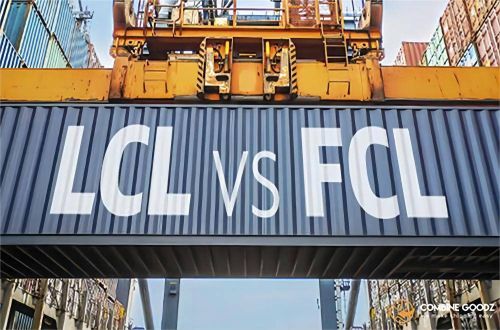
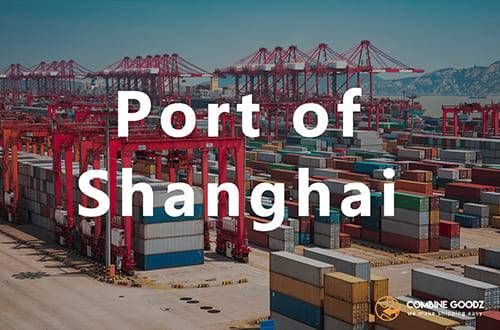

Categories
Share
The latest blogs and insights on what is happening in international transport and logistics.